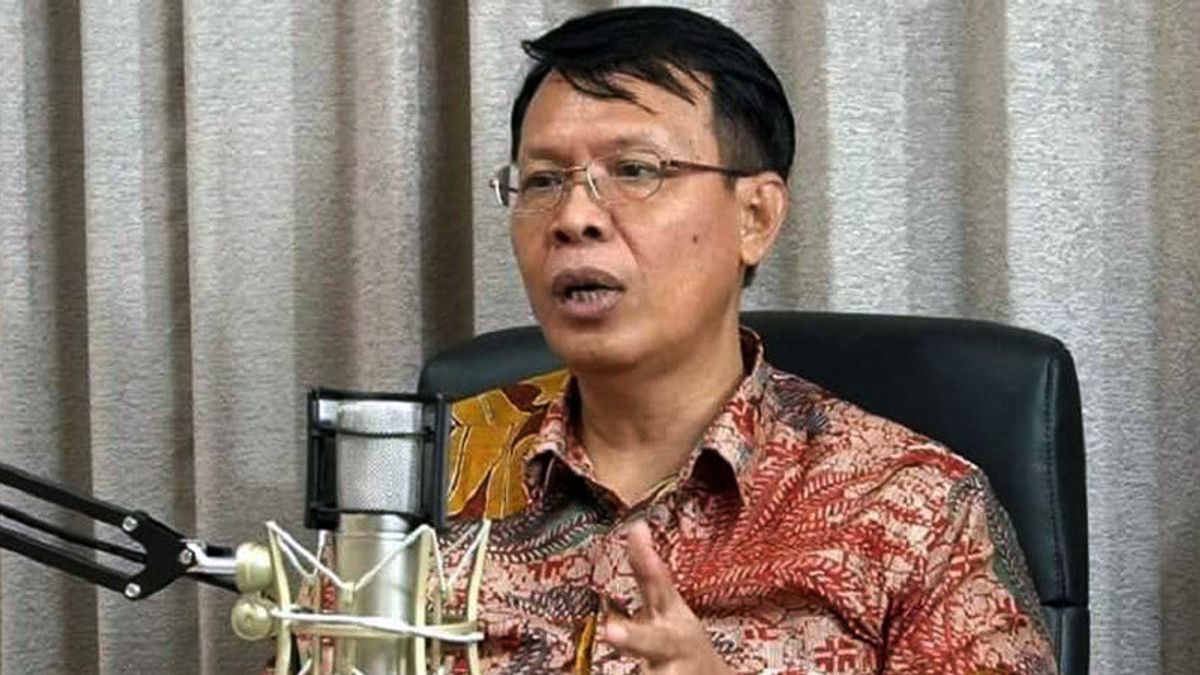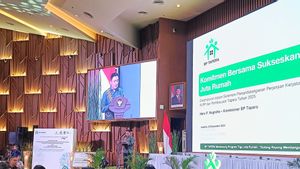JAKARTA - Trisakti University public policy observer Trubus Rahadiansyah asked the government to be serious in dealing with food problems after the stipulation of an increase in fuel oil prices (BBM).
The reason is, the food sector is the main influence in inflation.
"In my opinion, the most complicated impact of increasing fuel is the problem of food, food prices," Trubus said in Jakarta, Tuesday, September 6.
Trubus emphasized that the government can no longer implement conventional policies in maintaining the availability of food stocks.
He asked the government to think of other ways.
"The government, if it's just conventional, it won't be possible. This food demand is an increase, along with the increasing demographics. So in this case, the government is thinking of other ways besides absorbing farmers' grains," he said.
According to Trubus, the government should strengthen the synergy of cooperation between regions in dealing with the impact of fuel increases on food price inflation.
He emphasized that it is the government's responsibility to ensure equitable distribution of food stocks in each region at stable prices.
This effort, said Trubus, is important as soon as possible as a short-term solution to suppress food inflation.
"The government inevitably has to synergize between regions. There are certain areas where the food is indeed in surplus, but there are also minus areas. So how the government stabilizes between these regions. Because what I have seen so far is that the government is not optimal. That is not considered," Trubus explained.
In addition, according to him, the government must also make and implement a medium-long term policy to mitigate the problem of food inflation in the future related to the threat of a global and regional food crisis.
"The government must think about long-term policies, namely how the government will encourage, make policies so that young people return to villages, farm," he said.
In this case, he added, government support in the agricultural sector must also be realized in policy packages that make it easier and attract youth to return to the village.
"For example, ease of capital, fertilizer is cheaper," said Trubus.
In addition, Trubus assessed that the government should also carry out agrarian reform in accordance with Presidential Regulation of the Republic of Indonesia Number 86 of 2018.
"Agrarian reform is part of providing long-term food," he concluded.
Previously, the government intensively monitored and evaluated the implementation of national food policies in accordance with the current conditions. This is done so that the community's food needs can be met evenly. One of these policies is that the Government is currently strengthening rice stocks.
In the Limited Coordination Meeting (Rakortas) of Food Policy led by the Coordinating Minister for Economic Affairs Airlangga Hartarto, the government ensured that all food ingredients were sufficient until the end of 2022 through the expansion of planting and procurement.
"In the Coordination Meeting, the first was decided about the policy of purchasing grain or rice for farmers with price flexibility, and the second was the National Food Agency assigned Perum Bulog to strengthen CBP's stock to purchase grain or rice using price flexibility," said Coordinating Minister Airlangga.
The English, Chinese, Japanese, Arabic, and French versions are automatically generated by the AI. So there may still be inaccuracies in translating, please always see Indonesian as our main language. (system supported by DigitalSiber.id)








